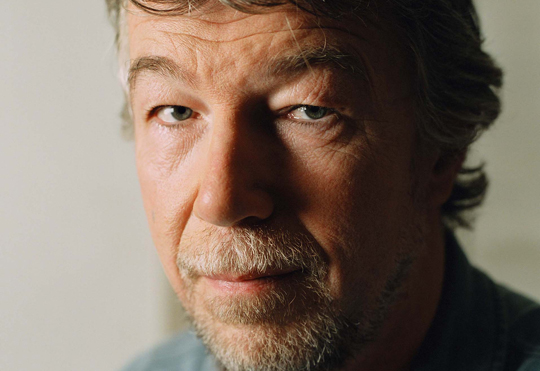 It’s a winter night in the meeting room of the town library. A handful of local worthies has gathered for the quarterly meet-the-author evening. These sessions can range from spell-binding accounts of traditional Fenland knitting patterns to scholarly memoirs of life as a Cambridgeshire station master in the late 1930s. But this evening is very different. A slightly built, unassuming man reads a passage from what he considers to be the perfect crime story. It is the memorable opening to Dorothy L Sayers’ masterpiece, The Nine Tailors. He further grips his already-entranced audience by going on to explain how his own interest in crime was influenced by his father’s involvement, as a Met police officer, in the investigation of the notorious Rillington Place murders. This was my introduction to Jim Kelly, one of the most original and distinctive writers of modern British crime fiction.
It’s a winter night in the meeting room of the town library. A handful of local worthies has gathered for the quarterly meet-the-author evening. These sessions can range from spell-binding accounts of traditional Fenland knitting patterns to scholarly memoirs of life as a Cambridgeshire station master in the late 1930s. But this evening is very different. A slightly built, unassuming man reads a passage from what he considers to be the perfect crime story. It is the memorable opening to Dorothy L Sayers’ masterpiece, The Nine Tailors. He further grips his already-entranced audience by going on to explain how his own interest in crime was influenced by his father’s involvement, as a Met police officer, in the investigation of the notorious Rillington Place murders. This was my introduction to Jim Kelly, one of the most original and distinctive writers of modern British crime fiction.
Born in Barnet in 1957, Kelly resisted an attempt by his school careers teacher to make him join the fire brigade, and secured a place to read geography at Sheffield University. After graduation he worked for a tool manufacturer but then began a career in journalism. He honed his skills on regional newspapers before being appointed to the staff of the Financial Times, and moving to the cathedral city of Ely, in the Cambridgeshire Fens. A daily commute gave him the time and space to focus on his real vocation – writing crime fiction. His first book, The Water Clock, featured the enigmatic journalist Philip Dryden, and was published in 2001.
 Two recurring themes have a massive presence in Kelly’s books. The first is a powerful sense of place. In the Philip Dryden books, that place is the Cambridgeshire Fens. Dryden lives and works in Ely – prosperous and lively, it literally rises above the flat, reclaimed land like a beacon. Once out of town, however, the reader is taken to a lonely and often frightening environment of ugly, scattered villages and inward-looking people who are occasionally mean of spirit and wary of strangers. This is no rural idyll, but a place of darkness and menace, a brooding and louring shadow.
Two recurring themes have a massive presence in Kelly’s books. The first is a powerful sense of place. In the Philip Dryden books, that place is the Cambridgeshire Fens. Dryden lives and works in Ely – prosperous and lively, it literally rises above the flat, reclaimed land like a beacon. Once out of town, however, the reader is taken to a lonely and often frightening environment of ugly, scattered villages and inward-looking people who are occasionally mean of spirit and wary of strangers. This is no rural idyll, but a place of darkness and menace, a brooding and louring shadow.
The Peter Shaw novels, beginning with Death Wore White in 2009, are set a few miles further north, in and around King’s Lynn. Shaw lives by the sea up the Norfolk coast towards Hunstanton, and the landscape here has none of the malevolent atmosphere of the Fens. The threat comes, instead, from the toxic mix of quaint cobbled streets and desolate council estates of the port of Lynn, both with their share of dark memories and hidden crimes.
The second potent presence in Kelly’s books is the force of the past. Time and time again, the plots hinge around long-forgotten events which come spinning up from depths to disturb the placid surface of the present day. A skeleton is discovered in the cellar of a derelict house used for target practice on MOD land; workers relocating ancient graves from a flooded cemetery uncover a secretly buried body; a corpse, dead for 30 years, is discovered in a tower high above Ely Cathedral; the disappearance of a 15-year-old girl casts a long shadow over a community nearly two decades later. It is said that the past is another country, but for Kelly it is a land which his contemporary characters must inhabit whether they like it or not.
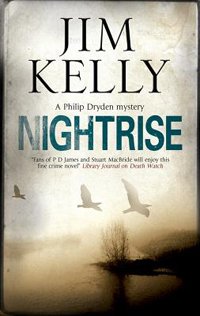 His two principal sleuths, Philip Dryden and Peter Shaw, are very different characters. Shaw has a talented, beautiful and independent wife of whom he is rather in awe, while Dryden’s wife Laura lies paralysed in a hospital bed as a result of a terrible road accident on a foggy Fenland road. Dryden is a slightly chaotic and disorganised journalist, while Shaw is a fiercely serious and jittery Detective Inspector. Both are faintly autobiographical, however, as Dryden struggles to contain his boredom covering nativity plays and flower shows for the local paper, while Shaw’s late father was a much respected policeman.
His two principal sleuths, Philip Dryden and Peter Shaw, are very different characters. Shaw has a talented, beautiful and independent wife of whom he is rather in awe, while Dryden’s wife Laura lies paralysed in a hospital bed as a result of a terrible road accident on a foggy Fenland road. Dryden is a slightly chaotic and disorganised journalist, while Shaw is a fiercely serious and jittery Detective Inspector. Both are faintly autobiographical, however, as Dryden struggles to contain his boredom covering nativity plays and flower shows for the local paper, while Shaw’s late father was a much respected policeman.
Every Holmes needs a Watson, and Shaw’s foil is the solitary, chain-smoking, misanthropic Sergeant Valentine, who acts as a kind of Greek chorus to complement his boss’s dramas, while battling his own demons. Traumatised by the accident which almost killed his wife, Dryden refuses to drive, so he employs a Falstaffian taxi driver called Humph, who exists on a diet of crisps and spirit miniatures, smuggled onboard thanks to his frequent trips to and from Stansted Airport.
Jim Kelly never disappoints. He is a master of landscape description and has an authentic grasp of police procedure, but his writing always rises above both formats. His awareness of how we are never truly free from the the past sucks the reader in, and his skill at describing how ordinary people deal with that legacy is formidable. The Philip Dryden novels are, in order, The Water Clock, The Fire Baby, The Moon Tunnel, The Coldest Blood, The Skeleton Man and Nightrise, Kelly’s latest book. The Peter Shaw novels are Death Wore White, Death Watch, Death Toll and Death’s Door.






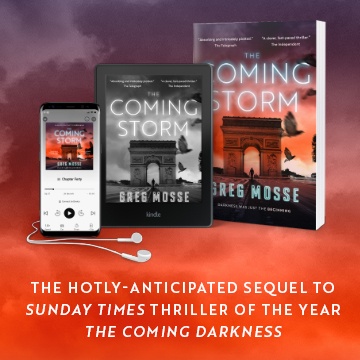
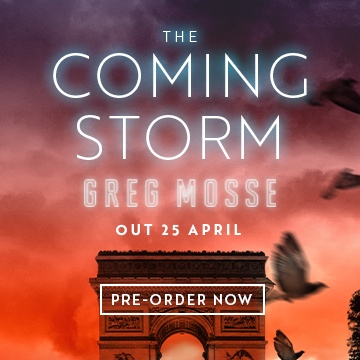
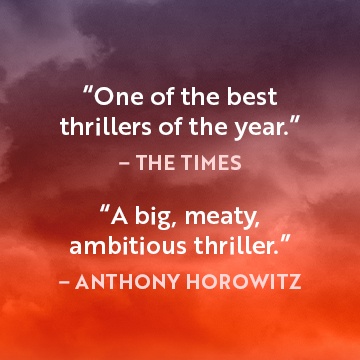
As one of my favourite authors I’ve read, and enjoyed, all of Jim Kelly’s books.
I like the characters for being ordinary, rather than heroic or maverick, and the interesting locations.
I’ve always been happy to recommend his books as a good read.